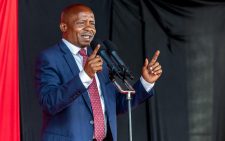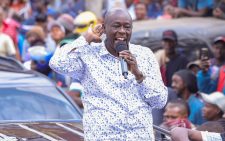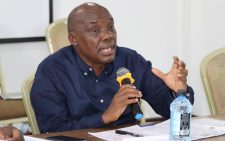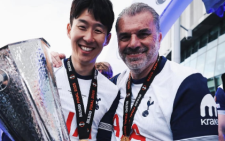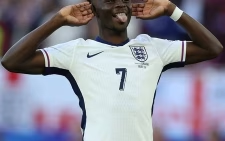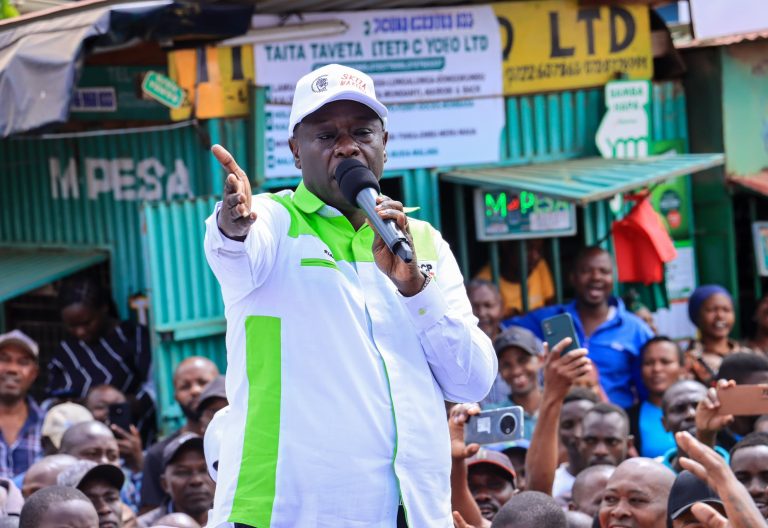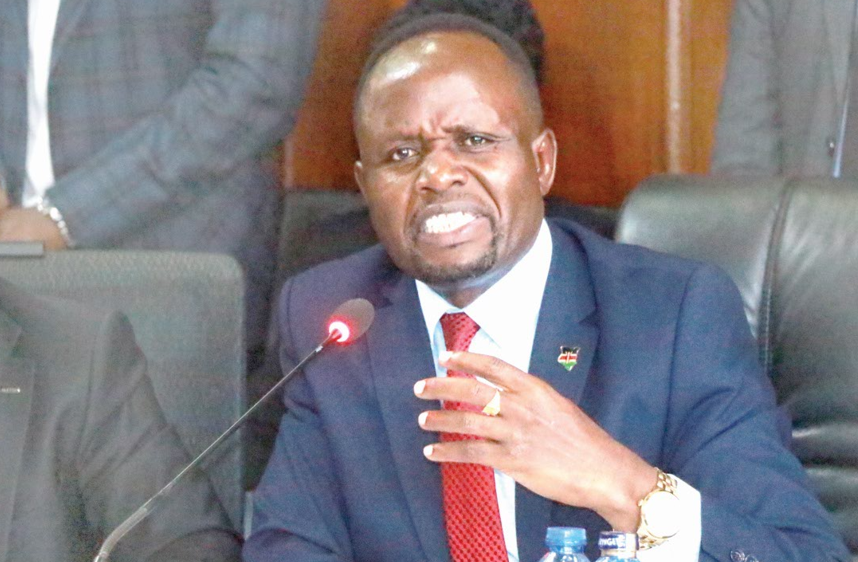Mt Kenya artistes face backlash, eat humble pie in tiff
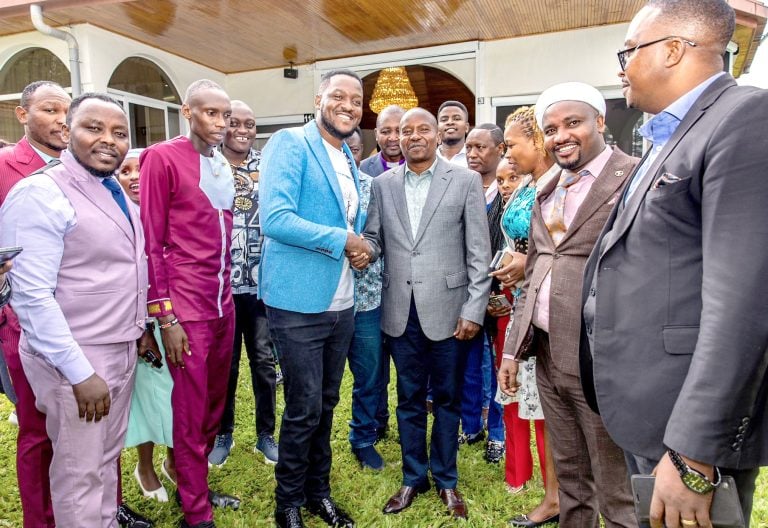
A storm is brewing in Mt Kenya’s vibrant music scene, as dozens of celebrated musicians, both gospel and secular, grapple with an unprecedented backlash from their fans as the battle for control of the region hots up.
Accusations of betrayal, threats of boycotts, and widespread condemnation have followed a recent high-profile visit by approximately 50 regional artists to Deputy President Kithure Kindiki’s Karen office, a move interpreted by many as a political endorsement of the Kenya Kwanza government.
Though the meeting was publicly described as a government initiative to explore support for the creative industry, fan sentiment suggests a deeper political hint.
The optics of the event, coming amid heightened public dissatisfaction with the government over social-economic challenges, painted a picture of perceived complicity by the artists—who were expected by many to stand as voices of the people.
The backlash has been particularly harsh on top-tier performers such as Mugithi sensation Samidoh Muchoki, philanthropic gospel singer Karangu Muraya, veteran hit-maker Ben Githae, 90k Ka Msoh, Jose Gatutura, DJ Fatxo, Sammy Irungu, Martin Wajanet, and Ngaruiya Junior.
Many of them boast massive followings and have built careers on messaging that resonates with the lived experiences of ordinary Kenyans.
However, their decision to participate in what was viewed as a politically choreographed engagement with the State turned the tide against them.
Within hours of the meeting, social media was ablaze with criticism. Artistes’ social platforms were flooded with angry comments, with some fans vowing to unfollow them, boycott their music and even protest their presence at public events.
“I’ve followed you for years, but this is the end. You’ve chosen money over people’s suffering,” read a comment on Samidoh’s page.
“We supported you when you started. How can you dine with those oppressing us?” questioned another angry fan.
Faced with mounting pressure, several artists have scrambled to explain themselves, issue public apologies or undertake acts of goodwill in an attempt to regain the trust of their followers.
Seeking forgiveness
In a particularly emotional gesture, gospel artiste 90k Ka Msoh took to the streets to distribute food and essential supplies worth Ksh53,645—more than the amount he allegedly received during the Karen meeting.
In a video that quickly went viral, he was seen shopping and later handing over the items to struggling families.
“Good evening my fans,” 90k Ka Msoh wrote on Facebook. “In all my artistry journey, it is you who have made me thrive. As a man, I accept I was wrong. I am sincerely apologetic. I beseech you to forgive me.”
Samidoh, who was performing in Thika last weekend, had to pause his performance to address a crowd that repeatedly demanded he take a stand against the government.
Caught in the moment, he declared: “It is you who have told me it’s one term, who am I to object? I have decided to align myself with your wishes and the route you want us to follow is the one we will pursue.”
Veteran performer Jose Gatutura also offered an explanation via Facebook.
“Seeing me on one side doesn’t mean I support or oppose the other. I am a neutral-based artist who performs for everyone. Music is our livelihood, and yesterday’s visit was about how we can benefit from the industry and how the government can support it,” he stated.
Despite these efforts, some fans remained unconvinced, interpreting the moves as damage control rather than genuine remorse.
As the country inches closer to the 2027 elections, communities are becoming increasingly sensitive to affiliations perceived as betrayals.
Former Deputy President Rigathi Gachagua, a key political figure in the region, had earlier told supporters to boycott any music by the “sell-out” artists.
He accused them of undermining the community’s collective struggles and aligning with political forces seen as exploitative.
In what seemed like a counter to Gachagua’s remarks, Deputy President Kindiki later came out in strong defence of the meeting and the artists who attended it.
“Music is a business like any other and deserves protection and support from the government. We cannot ignore the struggles of our artists who are a vital part of our social and economic fabric,” Kindiki said during an empowerment event in Kabete, Kiambu County.
Remain defiant
He added that the artists had approached him seeking help in fighting exploitation by brokers and cartels infiltrating the industry.
“This is not about politics—it’s about changing lives,” he said, pledging to engage with 500 more musicians in the coming days.
And adding his voice to the controversy, Head of the Presidential Special Projects and Creative Economy Coordination Dennis Itumbi, told musicians from the region not to bow to political blackmail.
“Kenyan musicians are now pawns in your bitter games. They are entrepreneurs, innovators and cultural custodians whose talents are God-given-not Gachagua Gachagua-sanctioned,” Itumbi told Gachagua.
The unfolding controversy has reignited a long-standing debate on the role of artists in political discourse.
While some believe musicians should speak truth to power and act as advocates for the oppressed, others argue that artists, like any professionals, have the right to engage with any political entity, especially when such interactions could lead to industry reforms and financial support.

